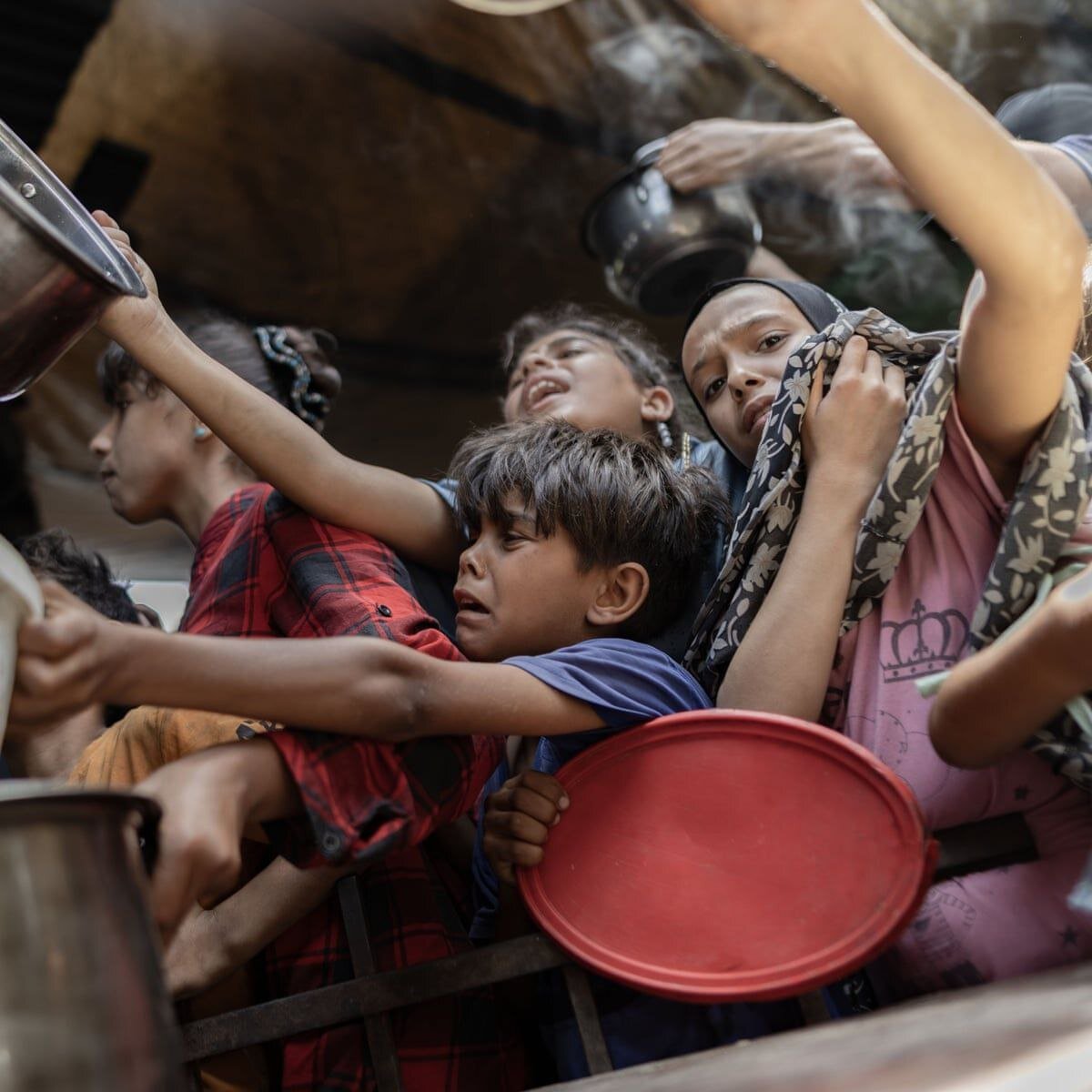Extermination through planned starvation
‘Consequences of starvation on the entire Gaza population will be profound’

TEHRAN – The United Nations has led urgent global condemnation against the Israeli regime over the escalating hunger crisis in Gaza.
UN Secretary-General Antonio Guterres has condemned severe Israeli restrictions on humanitarian supplies to Gaza, saying it has allowed only “a teaspoon of aid when a flood of assistance is required.”
He reiterated that the UN will not participate in the new U.S.-backed aid distribution model proposed by Israel.
“Without rapid, reliable, safe, and sustained aid access, more people will die – and the long-term consequences on the entire population will be profound,” Guterres told reporters.
Although the Israeli occupation regime claims it has permitted trucks of aid through its militarily-controlled Kerem Shalom crossing, Guterres said only about a third of the shipments have reached warehouses inside Gaza due to insecurity and lack of coordination.
The Israeli regime has briefly allowed limited aid deliveries by the UN and other groups as it prepares to implement a new U.S.-sponsored plan.
This initiative, managed by the so-called Gaza Humanitarian Foundation, is expected to begin by the end of the month.
It allegedly involves private American security contractors transporting aid to Israeli-approved “hubs” for distribution. Tel Aviv says this system will operate from four centers in southern Gaza.
However, many operational details remain blurry. Critics argue that this setup places aid distribution firmly under Israeli political and military control.
The UN has rejected the plan outright, warning it violates international humanitarian principles. It refuses to work with any system that compromises humanity, impartiality, independence, and neutrality.
According to UN experts, Israel is deliberately using food as a weapon to force Gaza’s 2.4 million people into the southern part of the Strip, which is akin to genocide.
“We will not take part in any scheme that fails to respect international law,” Guterres affirmed.
Despite having a workable plan to deliver aid, the UN is being sidelined. “The supplies, 160,000 pallets, enough to fill nearly 9,000 trucks, are waiting on the border,” Guterres said.
Currently, getting aid to displaced people living in tents and makeshift shelters is sporadic. UN officials estimate that at least 600 aid trucks are needed daily to address the humanitarian crisis. The UN World Food Program warned in a statement that hunger, desperation, and uncertainty over food deliveries are escalating tensions across Gaza.
Since the occupation regime imposed a full blockade on Gaza in early March, the situation has deteriorated sharply.
With the Israeli Occupation Forces (IOF) pushing most of Gaza’s population into an ever-shrinking area along the coast and near Khan Younis, international pressure to deliver aid has intensified.
Philippe Lazzarini, head of UNRWA, said the people of Gaza have been “starved and deprived of the basics including water and medicines for more than 11 weeks.”
He described the recent influx of about 100 aid trucks as “a needle in a haystack,” far below the minimum of 500–600 trucks required daily. “During the ceasefire, we managed that amount without diversion or looting,” he said.
The Israeli regime is not acting alone in creating this human-made famine. International rights groups say the United States is complicit in the starvation of Palestinians.
Washington has continued to back the Israeli regime diplomatically and militarily, despite clear legal grounds to withhold weapons under U.S. law when allies obstruct humanitarian aid.
Instead of using its leverage, the White House has repeatedly deferred to the Israeli occupation regime, even as conditions in Gaza reached genocidal levels since October 2023.
Critics argue that this U.S. complicity has now made it too late to prevent mass deaths from starvation in Gaza.
The choice to support Israel’s siege tactics rather than enforce international humanitarian law, they say, makes the United States a central actor in the unfolding catastrophe.
Leave a Comment